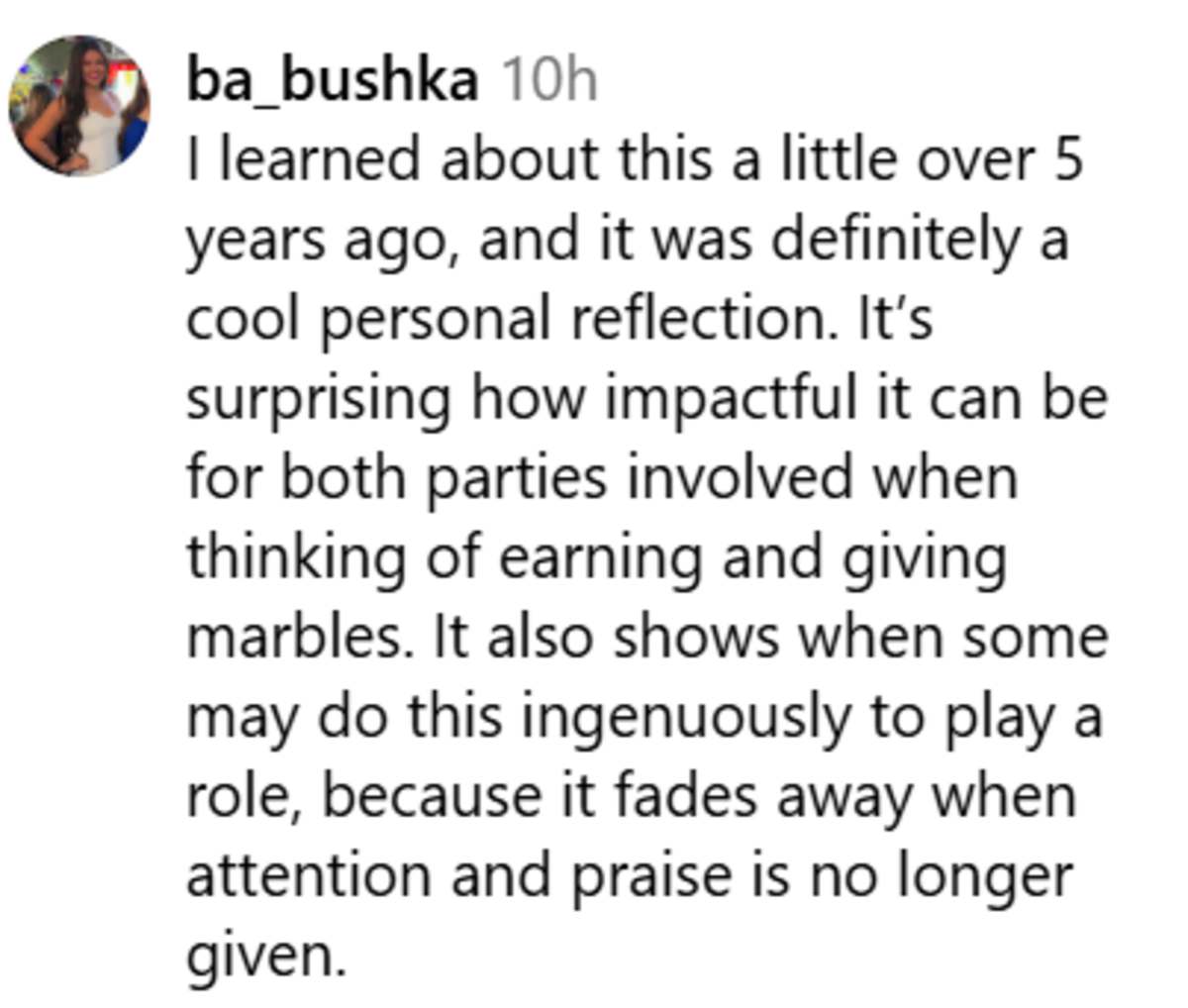Professor teaches heartbroken 4th grader the ‘marble jar’ theory and it tells you who to trust
'Trust is built slowly over time. A marble at a time...'

Dr. Brené Brown, a research professor, famous author, and speaker, realized that trust is built not through grand gestures, but through small acts of kindness when her daughter came home heartbroken about being betrayed by her friends. Her daughter, Ellen, was disappointed when she shared something confidential with her friends, but they told the entire class about it. The fourth grader was so angry that she had decided not to trust anyone again until her mom explained the "marble jar theory" to her. Dr. Brown talked about it in a podcast (@thediaryofaceopodcast) with Steven Bartlett, the recording of which was released on November 3.
"She said I will never trust anyone again. And my response immediately in my mind was, 'Damn straight, no f****** person. You trust your mama, and that's it.' Like that was my response, but again, that's not the right thing to do, right?" Dr. Brown asked. She said she wanted to raise a child who can trust other people and not be so negative about trust. Dr. Brown recalled how Ellen's teacher used to keep two jars: one full of marbles and the other empty. Whenever the class decided on something great unanimously, she transferred the marbles into the empty jar; when it got full, the teacher would reward them with an extra recess and party. Dr. Brown realized she could use the same concept to explain trust to Ellen. "Every time you share something with someone confidentially and they don't share it, they get a marble," she explained. Dr. Brown asked Ellen if she had any friends whom she could trust, and she named Lorna and Hannah. Ellen's reason to think she could trust both her friends was surprisingly small: they remembered her grandparents' names, they saved a seat for her, and they checked on her when she was unwell. "Trust is built slowly over time. A marble at a time," Dr. Brown said. The speaker used her marble jar theory to explain how leaders don't have to ask people to trust them during a crisis if they focus on building trust over time.
John M. Gottman, an American psychologist whom Dr. Brown also cited in the podcast, believes trust is built through everyday gestures — the sliding door moments. He says that in every interaction, you have the potential to earn somebody's trust, and it is definitely not built through grand gestures twice a year. While Gottman's research was for couples, the theory can also be applied to others. Meanwhile, reacting to the theory, @lorrainepascale commented, "I love this, but when you’ve had early trauma, it’s hard to recognize the small signs of trust and even harder to believe the jar won’t just shatter one day." @becomingheragainllc wrote, "So many adults can relearn how to trust from this simple example. I love Brené — she is such a breath of fresh air and an incredibly beautiful human."


@counseling_mama commented, "I heard you tell this story long ago. I use this all the time with my kids as an elementary school counselor. I bought marbles at the dollar store, and I created tons of friendship situations, and the kids have to figure out if the situation is a marble giving for trust and care or a marble taking for breaking trust or being unkind. My kids really understand this. As I walk down the hall, kids will say, 'Hey, I earned a marble today,' and they are so proud of themselves (as they should be). So it helps children understand how to trust a friend, how to select friends, and how to be a good friend, and this also builds self-awareness and self-esteem. And so much more, really. I, of course, credit you for teaching this to me so I could teach it to them. Thank you!"
You can follow The Diary Of A CEO (@thediaryofaceopodcast) on Instagram for more podcasts.
More on Scoop Upworthy
Parenting coach explains how to communicate with anxious child using the concept of trust
People who left toxic relationships share 7 lessons on learning to trust and love again
Business coach lists 11 promises every manager should make to their employees for trust building

 Share on Facebook
Share on Facebook





